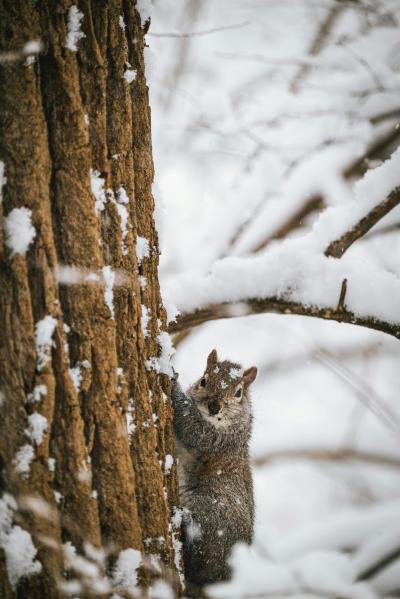It’s a common belief that winter brings a respite from those pests that cause a nuisance during the summer months, unfortunately this isn’t the case. There are plenty of rodents and insects to keep you busy over the festive months to maintain a pest-free home or business.
Don’t get yourself in a flap about bird control
The law is strict when it comes to dealing with pest birds as they are protected under The Wildlife & Countryside Act 1981 with exceptions for conditions specified under the General Licences issued by DEFRA. Even if they are causing a public health hazard during breeding and nesting season, for most species you will normally have to wait until it’s over or get special permission from Natural England. But there is a resolution, the one thing you can do lawfully to control birds is call in a team to fly predator birds such as Harris Hawks. These highly trained hawks are flown close to the building to unsettle pest birds and deter them from nesting or roosting. When carried out regularly, this natural method can be very effective, even in built-up areas.
Pigeons are creatures of habit, usually returning to the same place every year to nest. They are are attracted to buildings for warmth and protection from predators. If you don’t put a deterrent in place, then they will continue to return to your site. The same can be said for gulls who are very territorial animals.
Not only do birds carry harmful diseases and make a mess, bird droppings are also corrosive and can cause damage to building materials. They can also bring along with them a whole host of pests such as fleas, mites and flies.
Other bird control methods include netting which can be installed once the birds have been cleared. After the breeding season has started it is not permitted to remove the nests which can prevent netting from being installed. With nesting season typically running from February to August, with the busiest period being March to July, it’s good to get on top of your bird control during the winter months.
Small insects can cause big problems
With outdoor temperatures being a lot colder in the winter than inside our lovely heated homes/premises, this can often increase condensation and damp in buildings. This attracts many unwanted insects such as Silverfish which feed on mould. These tiny creatures can chew through plaster, insulation and, due to them being nocturnal, they can be hard to spot. The most common damp-loving pests we’ve had to deal with at Cleankill are Booklice and Woodlice. To prevent these little creatures from entering your home, ensure vegetation around doors and windows is maintained and potted plants aren’t placed too close to entrances as they often hide underneath. A common Booklice control method is to have a dehumidifier installed.
Where there’s a way there’s a rodent!
The rule of thumb is, if you can fit a pen into a hole then a rodent will be able to get through! Mice don’t have collarbones and flexible rib cages mean they can fit through openings the size of their heads. Our cosy, warm, food-filled homes are the perfect places for rodents to shelter from the cold winter temperatures. Bin rooms are especially attractive to rodents as they provide both shelter and scraps of food if your bin areas are not kept clean. Check for exterior cracks or gaps in your building both low and high as rats are exceptional climbers.
Once inside a premises the rodents will have a choice of lofts, nesting under floorboards or in wall cavities. Cable ducts can act as motorways for rats and mice and allow them to spread germs, cause destruction and possibly fires and floods as they chew through wiring and pipes.
For expert advice on pest control and a free survey or price comparison contact Cleankill Pest Control on 020 8668 5477.
